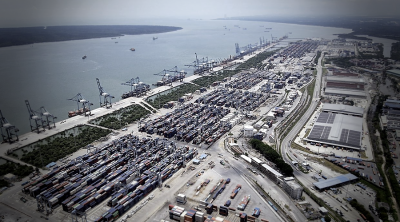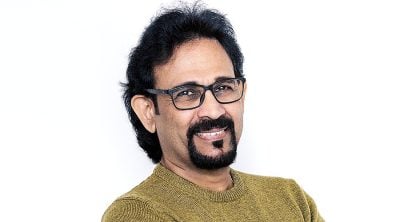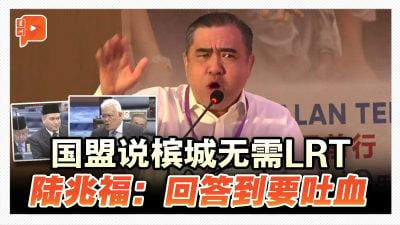
Driving north to Penang was itself an adventure, as it entailed navigating the undulating roads of the West Coast Expressway.
But the long drive was worth it – upon reaching the island, I was in awe at the island’s pristine cleanliness, with a grand salute to the state’s efficient waste management system.
The streets were clean, the back lanes spotless. Georgetown, or Seberang Prai, was charming to my eyes.
I was inspired to write about this, and I reached out to the former Sungai Puyu ADUN, the longest-serving elected state exco member from 2008 till 2023.
He was instrumental in making “The Pearl of the Orient” a clean and clear, white and pure gem.
His gracious response to my questions was truly encouraging, with his knowledge and understanding of the system on the back of his hand.
This made me wonder if there were any other local politicians who possessed such amount of knowledge ready to share with such precision and speed.
Over the past decade, Penang has experienced phenomenal growth in waste generation, escalating from 646,212.06 metric tons on 2013 to 810,978.25 metric tons in 2023.
This significant increase highlights the mounting waste management challenge as the amount generated grew annually, peaking at 842,936.98 metric tons in 2020.
Despite slight fluctuations, such as a decrease in 2021 and 2022 respectively, the overall trend points to a substantial rise in waste management generation, emphasising the urgent need for enhanced waste management and recycling initiatives to cope with this rapid growth.
What Penang did to make it spotless
This state faces unique challenges in solid waste management due to its limited land availability, having only one landfill.
All waste from the land and mainland is sent to the Pulau Burung Sanitary Landfill in Nibong Tebal.
In 2016, Penang implemented the Waste Segregation At Source (WSAS) Policy, requiring residents to segregate their waste into recyclables and general waste.
This policy aimed to divert waste, reduce landfill burden, and encourage recycling.
Over the past decade, Penang has significantly improved its recycling rate from 31.17 per cent in 2013 to 53.69 per cent in 2023.
This upward trend reflects successful waste management strategies, public awareness campaigns.
And community engagement initiatives/notable increases occurred between 2013 and 2019, with the rate climbing from 31.17 per cent to 46.61 per cent and continuing to surpass the halfway mark by reaching 53.69 per cent in 2023.
This near doubling of the recycling rate underscores Penang’s commitment to environmental sustainability and sets a strong foundation for future progress.
Penang’s waste management: a success story
Penang’s efforts in waste management are commendable. The state has set a benchmark to other states through innovative policies, community engagement, and strict enforcement.
The state government deserves much applause for transforming Penang into a model of cleanliness and sustainability, proving that with the right initiatives, even limited resources can lead to significant environmental progress.
Penang has implemented several measures to manage waste effectively and promote sustainability:
■ WSAS Policy mandates that residents separate general waste from recyclables collected weekly.
■ No Plastic Bag Day Campaign, in effect since 2009, prohibiting the use of plastic bags on certain days of the week, and imposing RM1 charge on others
■ Polystyrene Container Ban in 2012
■ No Plastic Straw Campaign that ensured straws were only given upon request
■ Educational initiatives include eco-talks, environmental maps, and workshops.
■ The Penang Green Council offers incentives through various green schemes including the distribution of paper container to hawkers during the MCO in April 2021.
■ Penang Green Agenda, initiated in 2016, addresses broader sustainability and environmental issues
The state further acknowledges the efforts of all involved in the waste management system, and in appreciation handed out state-level honours to five waste workers, during the recent Penang Governors Awards.
Through several of my articles, I have constantly urged our local councils to visit our neighbour Singapore in order to learn and emulate their impressive waste management practice and system.
However, I now wish to differ; visit Penang in our own national neighbourhood instead.
I suggest that the Waste Management Association of Malaysia (WMAM) organise its subsequent national waste management conference in Penang and invite the local Penang folk to share on how they have managed to transform a not-so-clean state to an admirably spotless one.
Commitment and conviction are the two keywords that waste workers must posses.
Waste management is not a 9-to-5 job. It is a task requires 24/7 commitment. We need waste workers at every level to carry out their tasks in the most committed manner.
Malaysians are careless about their waste. Penang has turned the tables and placed itself on a pedestal of admiration and much credit for its efforts.
DBKL as well as other states must do the same. Regardless of the number of people moving about daily, by maintaining the cleanliness and spotlessness of cities around the country will not only help boost our tourism industry, but also allow our citizens to live more happily and healthily.
Let’s emulate Penang and strive to be the cleanest country in the world.

(Ravindran Raman Kutty is an active social worker.)
ADVERTISEMENT
ADVERTISEMENT








































